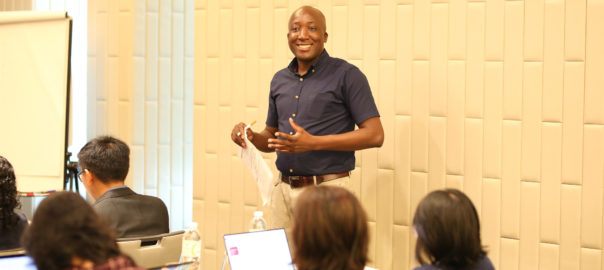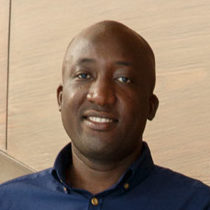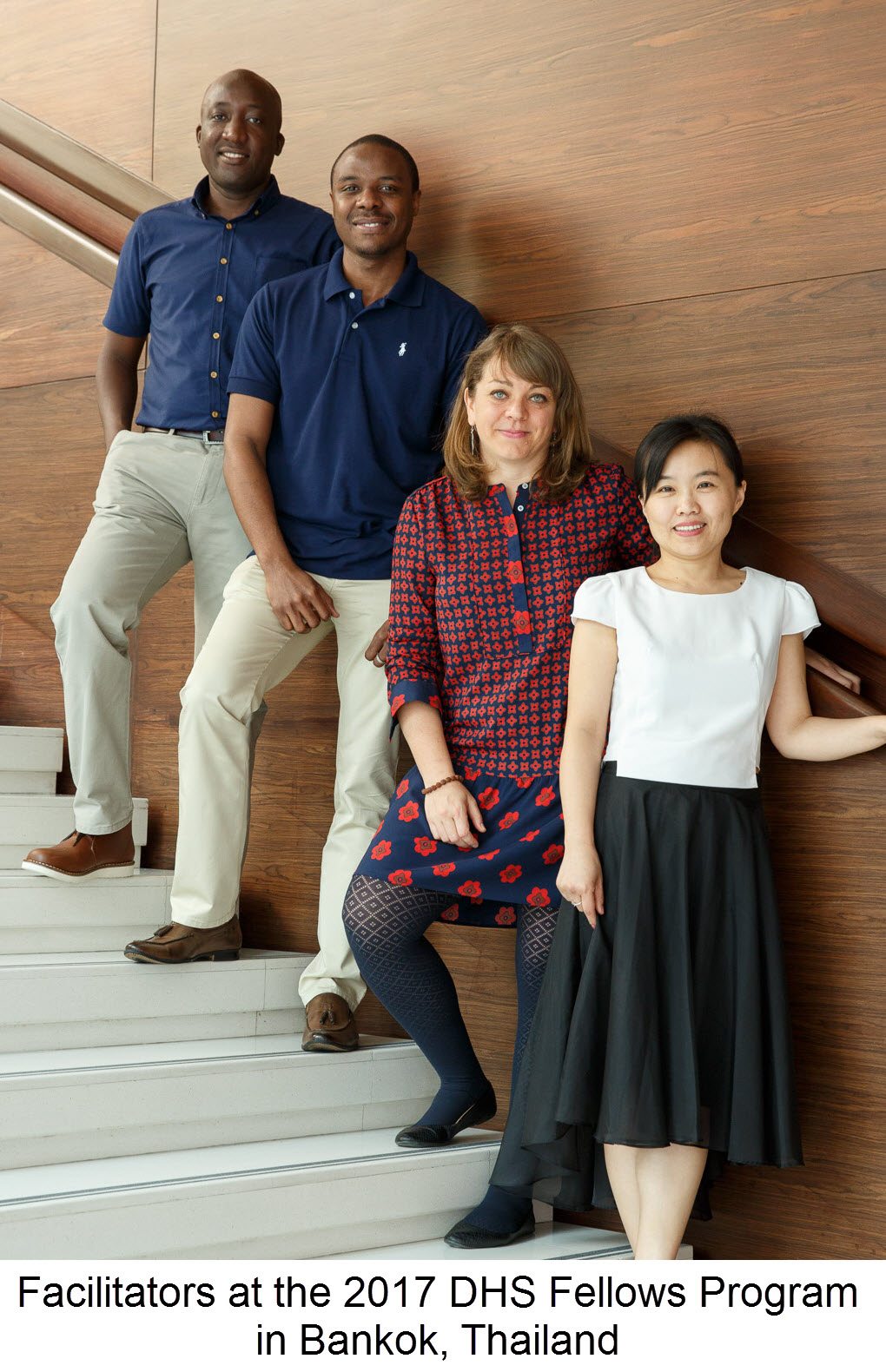From Participant to Facilitator: What I Learned From the DHS Fellows Program

I was part of a three-member team from Mulungushi University in Zambia accepted into the 2016 DHS Fellows Program. We were the second group of Fellows from our country, the first one in 2015 representing the University of Zambia.
The 2016 DHS Fellows Program opened the doors to my professional success. I interacted with fellow academicians from our continent; we shared and learned new ideas from highly experienced and seasoned scholars on how they use DHS data in their universities and countries. Apart from learning from my fellow academicians, the DHS Fellows facilitators, Drs. Wenjuan Wang and Shireen Assaf, helped me develop a better understanding of how to best use DHS data, how to select and apply appropriate analytical methods, and what limitations are in DHS data. Prior to participating in the Fellows Program, I had limited experience with these processes. DHS data is now core to my academic life – from teaching students analysis to conducting my own research. Since 2016, I have published five journal articles based on DHS data.
My participation in the DHS Fellows Program not only strengthened my professional development but also benefited my university. Upon completion of the Fellows Program, together with my team members, Mulenga Chonzi Mulenga and James Nilesh Mulenga, we trained academic staff and students on how to use DHS data in the classroom and research through two workshops and several courses. DHS data are now widely used among Mulungushi University students and lecturers for writing research articles and four-year undergraduate reports. Mulungushi University has recently started a Bachelor of Science in Demography (BSc DEM) Program. Most of the subject matter covered during the DHS Fellows workshops formed the BSc DEM course material, now a full-fledged program since the 2016/17 academic year.
One year after I completed the Fellowship, The DHS Program asked me to co-facilitate the first-ever Asian DHS Fellows Program. Honestly speaking, this was a life-changing experience as it allowed me to share the skills and knowledge gained over time with senior academicians from outside Africa. The time spent reviewing and commenting on the 2017 Fellows’ Working Papers broadened my perspective in looking at research. What was most gratifying was that they appreciated my comments which resulted in improved Working Papers. As a result, we found common ground to collaborate on future research. The successful experience working with Asian Fellows showcased the possibility and benefits of mixing scholars from Asia and Africa. I believe the use and understanding of DHS data are independent of where the group of scholars comes from, it’s about how informed and involved these two groups are in their respective countries which makes the difference in making the most out of DHS data. Such teams will benefit from one another through experiences that they will share with other Fellows.
I shall remain ever grateful to The DHS Program for the opportunities and look forward to more collaborations. I urge any person interested in conducting health-related research to utilize the rich resource of DHS data.
Have more questions about the DHS Fellows Program? Leave them in the comments below, and don’t forget to subscribe to receive email alerts for new posts.
Photo Caption: Bupe co-facilitating the 2017 DHS Fellows Program in Bangkok, Thailand.
 Bwalya Bupe Bwalya is a faculty member in the Department of Mathematics and Statistics at Mulungushi University. He holds a Master of Arts in Population Studies. His passion for research includes topics such as nutrition, maternal and child health, HIV/AIDS, as well as adolescent and reproductive health. He has consulted on nutrition activities with organizations such as CARE International, Zambia, and the PATH-Thrive Project. He is also a professional member of the Monitoring and Evaluation Association, Peoples Health Movement-Zambia, Union for African Population Studies (UAPS), and the International Union for the Scientific Study of Population (IUSSP). In addition, he has presented papers at several local and international conferences such as the 7th ADC-UAPS and 28th IUSSP IPC.
Bwalya Bupe Bwalya is a faculty member in the Department of Mathematics and Statistics at Mulungushi University. He holds a Master of Arts in Population Studies. His passion for research includes topics such as nutrition, maternal and child health, HIV/AIDS, as well as adolescent and reproductive health. He has consulted on nutrition activities with organizations such as CARE International, Zambia, and the PATH-Thrive Project. He is also a professional member of the Monitoring and Evaluation Association, Peoples Health Movement-Zambia, Union for African Population Studies (UAPS), and the International Union for the Scientific Study of Population (IUSSP). In addition, he has presented papers at several local and international conferences such as the 7th ADC-UAPS and 28th IUSSP IPC.


I would like to know more about DHS
You can learn more about The DHS Fellows Program and other capacity strengthening initiatives on The DHS Program website: https://www.dhsprogram.com/What-We-Do/Capacity-Strengthening/index.cfm